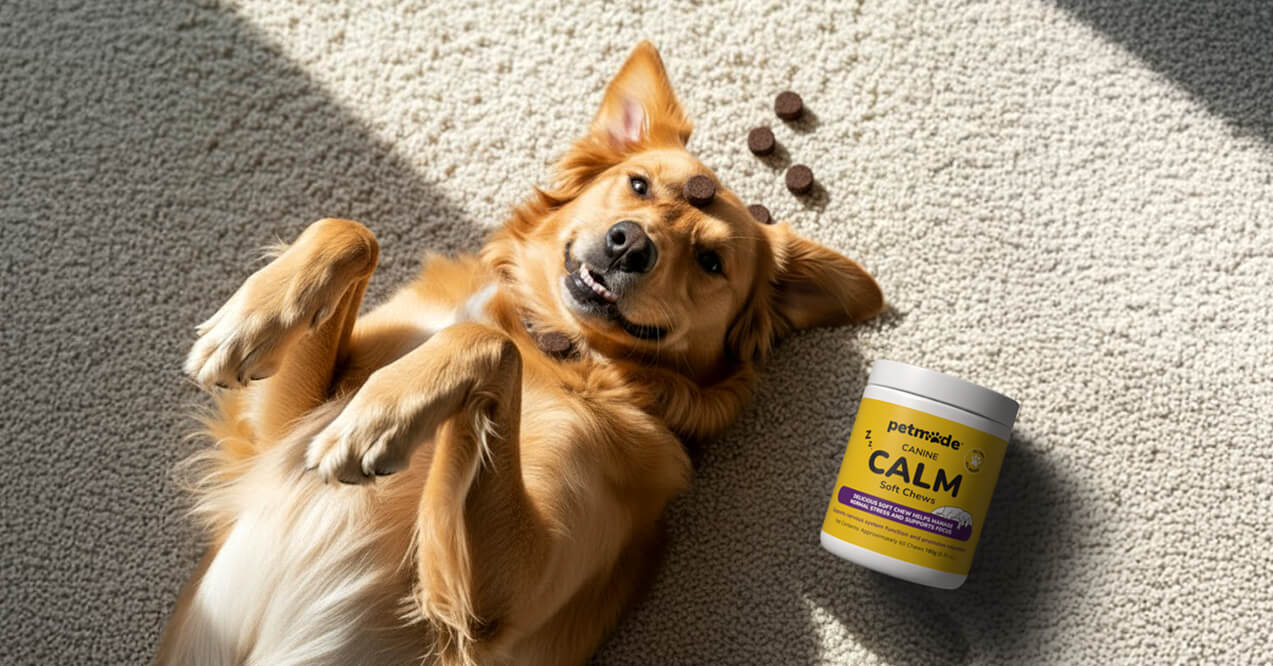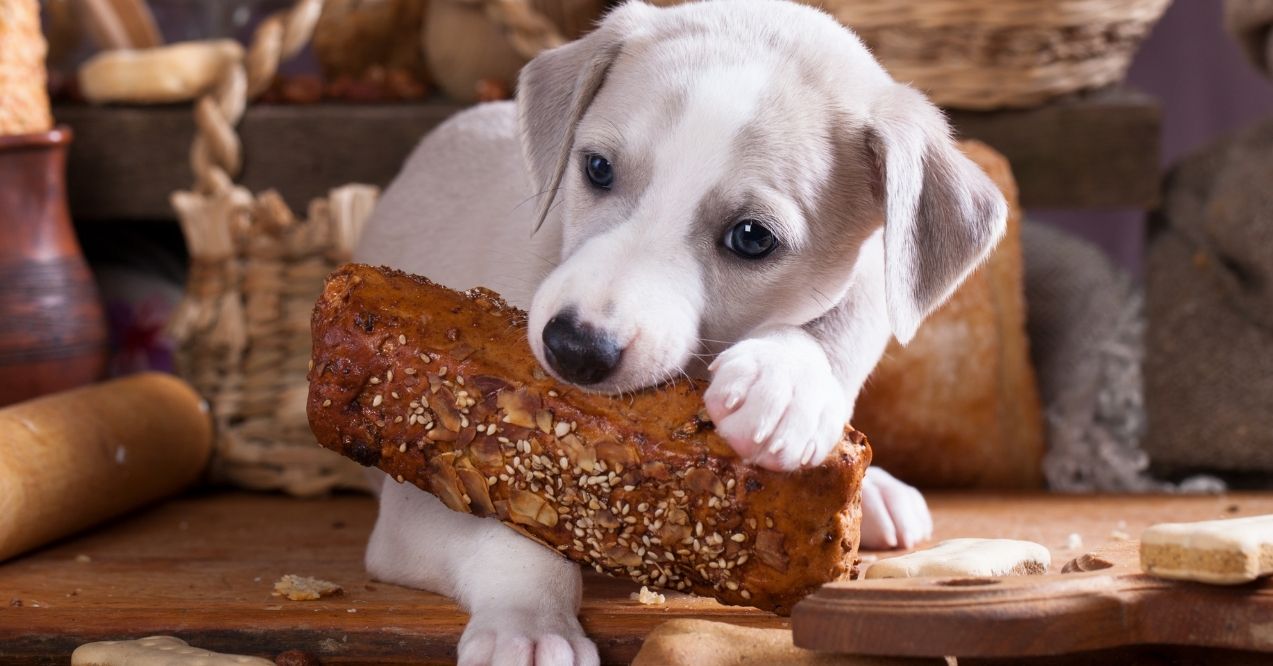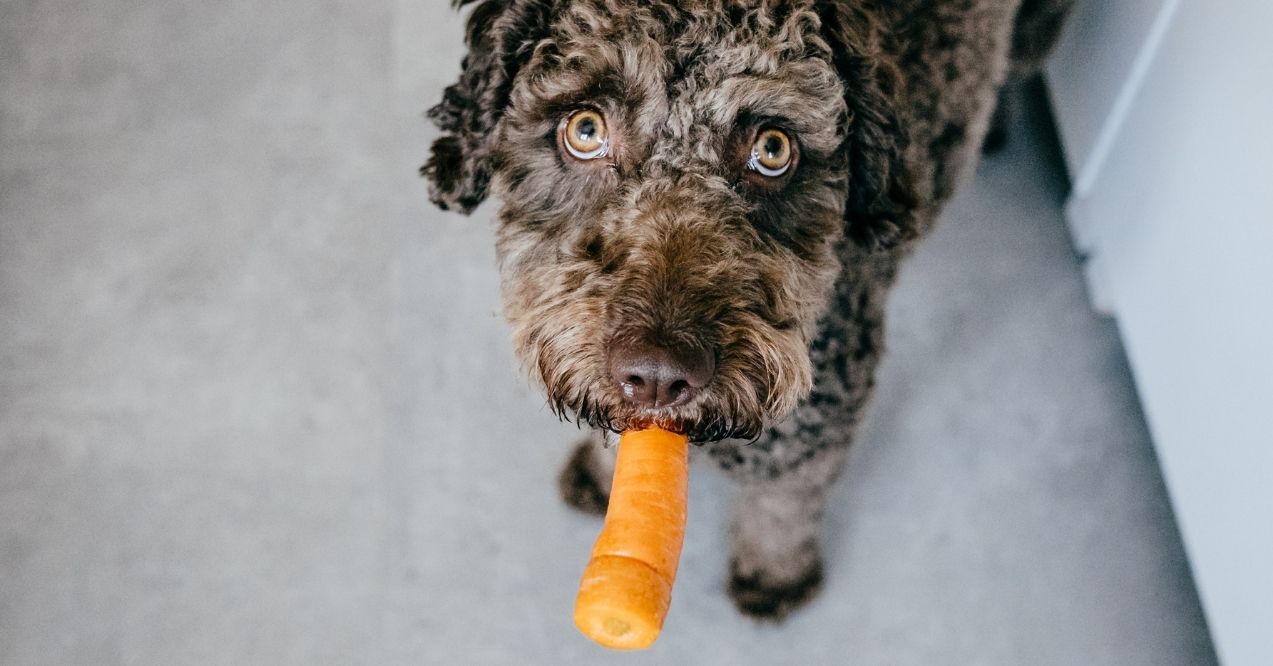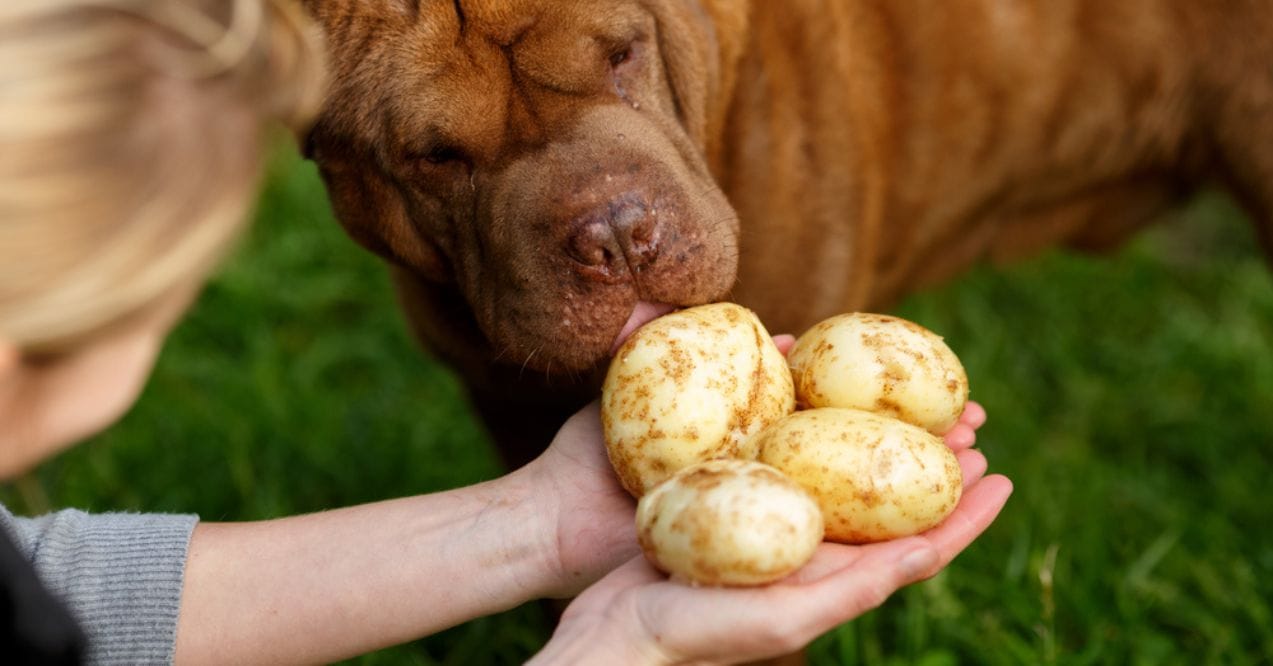Are Chicken Bones Bad for Dogs?
Are chicken bones bad for dogs? It’s a common scenario: you turn away for a second, and your dog has managed to grab a chicken bone from the table or trash. While it may seem like a small mishap, this situation can lead to serious health concerns for your pet.
Cooked chicken bones, in particular, become brittle and sharp, making them prone to splintering, which can cause internal injuries or choking hazards. Even raw bones, while slightly less dangerous, carry risks of bacterial contamination and can still pose a choking or digestive threat. So, while dogs can eat chicken safely in many forms, bones should be strictly avoided due to these potential dangers.
What to Know About Chicken Bones for Dogs
Dogs are naturally drawn to chicken bones, and it’s not hard to see why. The strong, meaty aroma is irresistible to their keen sense of smell, while the savory flavor appeals to their carnivorous instincts. The satisfying crunch and chew of bones tap into their natural urge to gnaw, an instinct that harks back to their wild ancestors who would consume entire prey, bones and all.
But why are chicken bones bad for dogs? The answer lies in their structure and how they react when consumed.
Raw vs. Cooked
While both raw and cooked bones pose risks, cooked bones are significantly more dangerous. Raw bones are more flexible and less likely to splinter, though they still carry risks of bacterial contamination and choking.
Are cooked chicken bones bad for dogs? Absolutely. The cooking process makes bones brittle and prone to splintering, creating sharp fragments that can cause serious internal injuries. This is why you should never intentionally give your dog cooked chicken bones, no matter how much they beg.
Small Bones, Big Problems
Chicken bones are particularly hazardous due to their size and structure. They’re small enough to be swallowed whole, increasing the risk of choking. Their hollow, brittle nature makes them prone to shattering, forming sharp edges that can potentially cause internal damage. These bones can easily get stuck in the throat or digestive tract, leading to a host of problems.
How Bad Are Chicken Bones for Dogs?
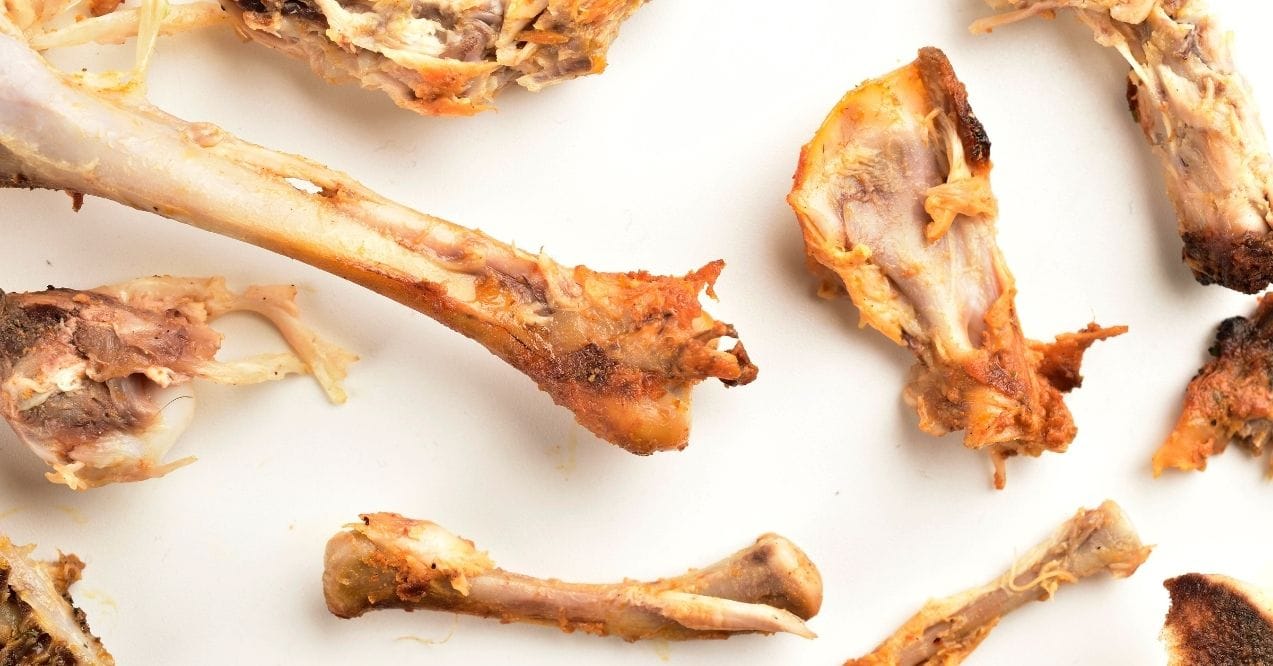
The answer might surprise you. While it might seem like a simple treat, allowing dogs to chew on chicken bones can lead to a range of serious health issues. Let’s dive into the specific dangers:
Choking Hazards and Airway Obstruction
One of the most immediate risks is choking. Bones can become lodged in the throat, blocking airflow, or large pieces may get stuck in the esophagus. Signs of choking include pawing at the mouth, excessive drooling, coughing or gagging, and difficulty breathing.
If you suspect your dog is choking, it’s crucial to act quickly:
- For small dogs, you can try holding them upside down by the hips and gently shaking.
- For larger dogs, place your hands on either side of the ribcage and apply firm pressure.
However, only attempt these methods if you’re confident and the dog is clearly choking. Otherwise, it’s best to rush to the vet immediately.
Even if the initial choking risk passes, there’s still danger. Small bone fragments can cause swelling in the throat hours later, leading to delayed airway issues. Watch for persistent coughing, difficulty swallowing, or restlessness.
Gastrointestinal Perforation
Sharp bone fragments can puncture the digestive tract, causing internal injuries. These perforations can occur anywhere from the esophagus to the intestines. Symptoms to watch for include vomiting or dry heaving, loss of appetite, lethargy or depression, abdominal pain or swelling, and dark or bloody stools.
The complications from these injuries can be severe. Peritonitis, an inflammation of the abdominal lining or a life-threatening systemic infection can result from these perforations.
Intestinal Blockage
Can dogs eat chicken bones without consequences? Often, the answer is no. Obstructions can occur when bones get stuck in the digestive tract. These can be partial blockages, where some material can pass but digestion is impaired, or complete blockages, where nothing can pass through the intestines.
Signs of blockage include vomiting, constipation or diarrhea, loss of appetite, abdominal pain, and lethargy. The long-term effects can be serious, including damage to the intestinal lining, chronic digestive issues, and malnutrition due to poor nutrient absorption.
Other Health Risks
The dangers don’t stop there. Raw chicken bones can harbor harmful bacteria, leading to food poisoning-like symptoms. Chewing on hard bones can result in dental injuries like cracked or broken teeth, or gum injuries from sharp fragments.
Excessive bone consumption can lead to nutritional imbalances, causing constipation or interfering with the absorption of other nutrients. There’s also the risk of bone splinters becoming lodged in the roof of the mouth or gums, causing pain, infection, and difficulty eating.
What to Do If Your Dog Eats Chicken Bones
If you catch your dog in the act or suspect they’ve eaten chicken bones:
- Stay calm – your dog will pick up on your anxiety
- Do not try to induce vomiting – this can cause additional damage
- Remove any remaining bones from reach
- Offer your dog soft, bulky foods like bread to help cushion any bone fragments
- Monitor your dog closely for the next 48-72 hours
Watch for these symptoms and seek immediate veterinary care if you notice:
- Difficulty breathing
- Excessive drooling
- Vomiting or gagging
- Lethargy or weakness
- Loss of appetite
- Abdominal pain or swelling
- Bloody or tar-like stools
Conclusion
Can dogs have chicken bones? The answer is no, due to the significant risks posed by choking, internal injuries, and gastrointestinal blockages, especially with cooked bones. Even raw bones carry bacterial contamination risks. It’s crucial to keep chicken bones out of your dog’s reach, monitor them closely if bones are consumed, and seek immediate veterinary care if symptoms arise. Prevention and caution are the best strategies for keeping your dog safe.
Yes, cooked chicken bones are more dangerous. They become brittle when cooked, making them prone to splintering into sharp fragments that can cause internal injuries. Raw bones, while still risky, are less likely to splinter.
No, dogs cannot safely eat boiled chicken bones. Boiling doesn’t change the fact that these are cooked bones, which can splinter and cause choking, internal injuries, or blockages. It’s best to avoid giving dogs any chicken bones.
Chicken bones pose risks to all dogs, but smaller dogs face greater danger. They’re more likely to choke on whole bones and their smaller digestive tracts are more vulnerable to punctures or blockages from bone fragments.
Advertisement. This site offers health, wellness, fitness and nutritional information and is designed for educational purposes only. You should not rely on this information as a substitute for, nor does it replace, professional medical advice, diagnosis, or treatment. If you have any concerns or questions about your health, you should always consult with a physician or other health-care professional. Do not disregard, avoid or delay obtaining medical or health related advice from your health-care professional because of something you may have read on this site. The use of any information provided on this site is solely at your own risk.







